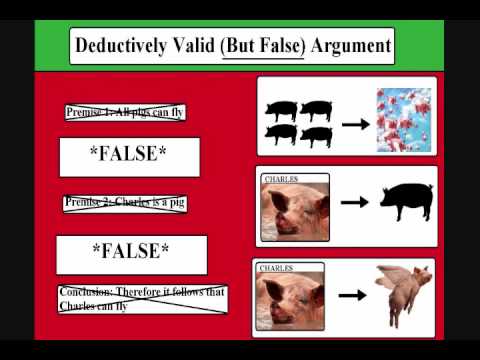AnarchistPhilosopher
I Introduce the basics on what constitutes “inductive arguments” and deductive arguments” as part 1 of my introduction to logic and argumentation series.
Key Points:
*A deductive argument is intended to provide absolute and conclusive support for its conclusion.
*A deductive argument that succeeds in providing conclusive support for its conclusion is said to be valid. A valid argument is such that if all its premises are true, the conclusion must be true.
*A deductively valid argument with true premises is said to be sound.
*An inductive argument that succeeds in providing probable support for its conclusion is said to be strong. A strong argument is such that if its premises are true, its conclusion is probably true.
*An inductively strong argument with true premises is said to be cogent.
